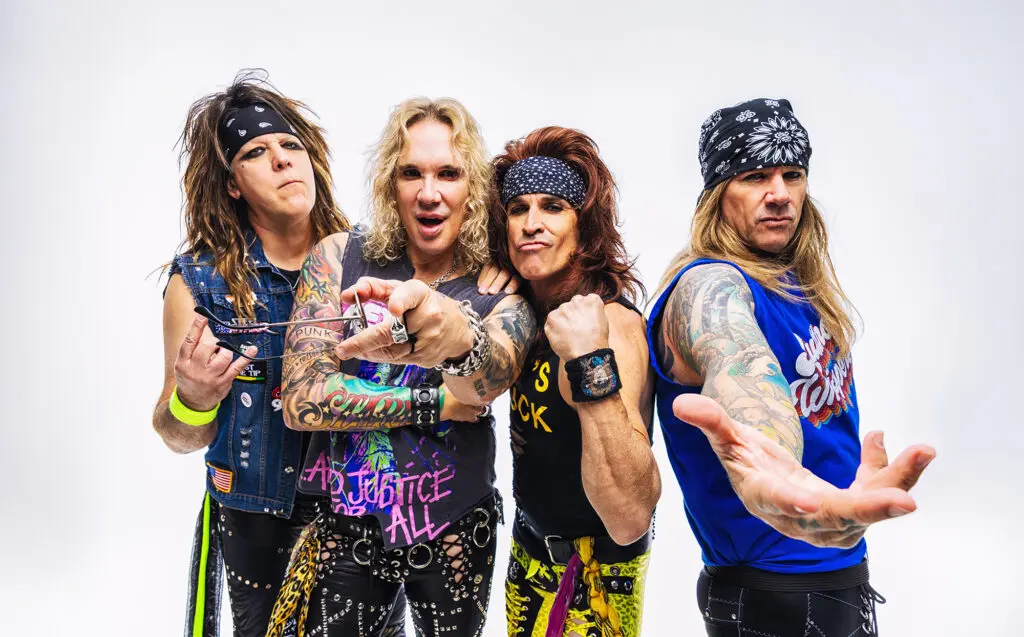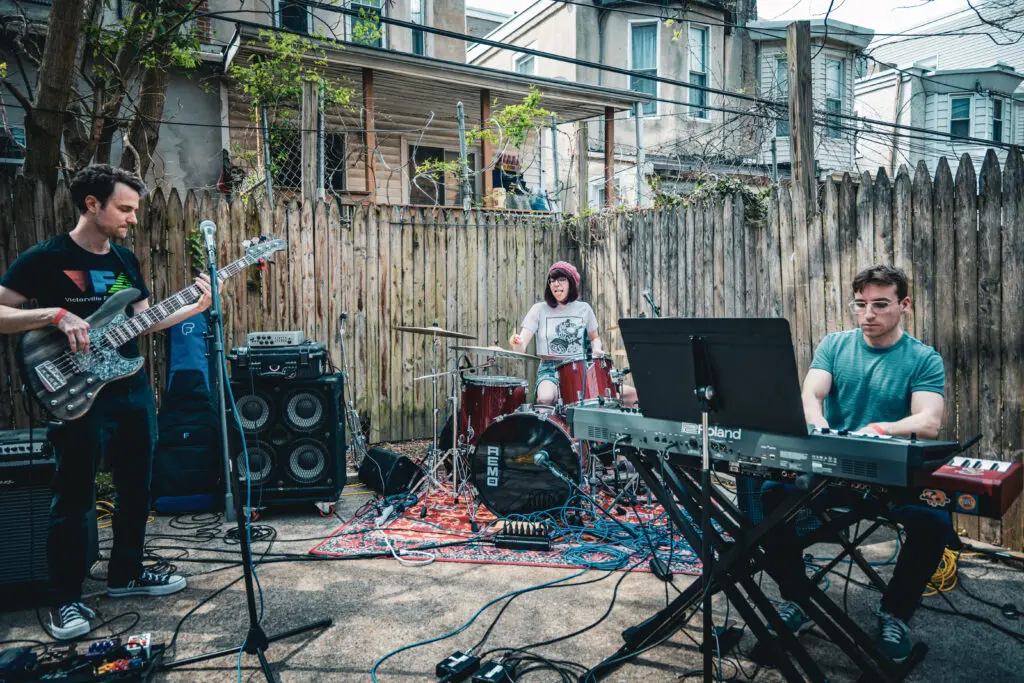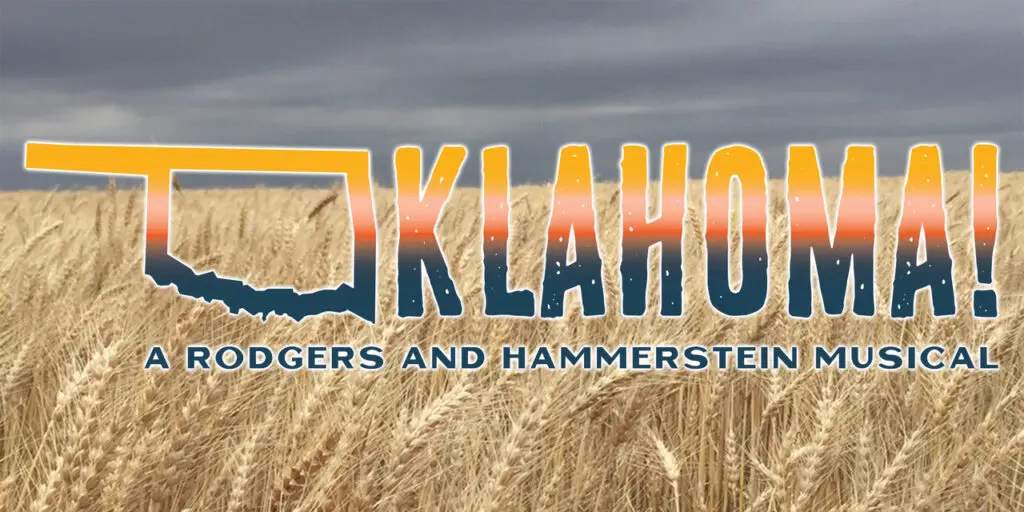Reeves Gabrels – An Xperience Interview
Written by Staff on January 3, 2025
Reeves Gabrels – An Xperience Interview – by Rob Smittix.
RRX: How are you doing this morning?
RG: Good. I’m up early because we’ve got a cat we got over a year ago after the first gig we did with Doom Dogs, and I think it was July of ’23 … with the current lineup of the band. Anyway, Susan (Mrs. Gabrels) was looking at this cat online, and I could see she kept going back to this cat, and I said “Is that cat calling your name?” Because we had cats, and all of them had passed away over time. They just aged out. It was working for us with traveling because we didn’t have to worry about taking care of the cat. You know? Just lock the door and go. Anyway, the reason why I bring the cat up is, he wakes one of us up every morning between four and five to eat. Then we feed him, and then he gets in bed between us and falls asleep for a little while. Then he gets up again at eight and wants to get fed again. So I’ve been up a while, and he’s probably thinking, yeah I can get another meal out of him.
RRX: (Laughs) I hear that, I’ve got a knucklehead of a cat myself. Yeah, I heard you tried to text me from your iPhone and I didn’t get any of those texts. But I’m thinking the iPhone sometimes has those features on it where they don’t like us Android users. I’m Team Android all the way, though. I like to pay less and still get the same features.
RG: Well, I always liked the little green man.
RRX: Right.
RG: That was really what sold it for me. But then everybody I work with … there’s so much file transferring going on … I’m of the generation, when I was in high school, there was one computer in the computer room.
RRX: Oh yeah.
RG: And that was it. Between just squeaking by, taking typing, which I was a great source of embarrassment to my Mom because she was a legal typist. She worked for the clerk of courts and stuff, and when she was in her late teens, she was a competitive typist. I guess they had a competition. I could barely type 20 words a minute, but I managed, and I had already gotten accepted at the college I wanted. I just needed to get this one credit; I think they just took mercy on me and let me squeak by. It’s funny, I could not watch the screen, I had to watch my fingers when I typed, it’s one of the big crimes in the typing world. The point being that everybody I work with is better with computers than I am, and they all use Apple. So I just thought, oh well, f*** it, I’ll get an iPhone. And I like the fact that if I get music on my laptop, I can also listen to it on my phone, just the little convenience of that.
RRX: Definitely. They never offered me a typing class, which sucks because, with my job, I could have really used it.
RG: Yeah, well, they offered it to me and it hasn’t helped.
(Both Laugh)
RRX: One of the greatest moments in my music life would be hanging out with you and Buck Dharma at the Hilton Bar after Blue Öyster Cult played at the Egg. We’re all just talking, and I felt like we were all on the same level for a minute. But then you guys started talking about these major rock stars that you both worked with and now I’m wondering how do I get back into this conversation? In my head, I was thinking, “Should I ask these guys if they ever played Valentine’s?” But then I asked, “Do you guys remember the band Jeebus?” And that brought me back into the conversation because you played guitar with Jeebus, and my band Smittix did a show with you once, years back.
RG: Yes, that show felt like it had to have been a bank or something in downtown Albany, and I seem to remember angled parking.
RRX: Yes. The venue was Savannah’s, and that building definitely was a bank at some point, and I think it is again.
RG: You could bring your gear in through this marble hallway. It’s funny the things I remember. I don’t remember street names but I’ll remember the tree that was on the corner.
RRX: (Laughs) I was talking to you outside while I was having a smoke and you said a few things that I never forgot. I’m thinking, “Here’s a guy that was out there just playing with (David) Bowie not that long ago. I’m sure he’s played arenas and stadiums.” But you said to me that this is what it’s all about. You told me that you missed this … that you missed playing in this intimate setting and the smaller clubs. And that really stuck with me.
RG: Yeah, I mean … obviously, it’s still true. Especially now being with the Cure. We played big places with Bowie and Tin Machine. But Tin Machine was an idea so David could play small places (for him) and not play any old Bowie songs. Once we made it clear that we weren’t playing any of the hits, the crowds got smaller. So we could play 2,500, 3,000 capacity places. I mean … at the same time, we did play Paradiso in Amsterdam, which is like an 1,800-capacity place if I remember correctly. But there were 25,000 people outside!
RRX: Damn!
RG: The city had to erect what were called jumbotrons back in the day, just to take the heat off from the people trying to get in. At least that’s the way I remember it. And then we left through a back door, down a stairway into a boat. We kind of escaped down a canal back to our hotel.
RRX: That’s wild.
RG: Yeah, it was kind of like a James Bond movie or something. But … his idea of playing small was playing for 3,000. The Fillmore East, I think, was 2,600 people, and there are lots of great live albums that came out of that. I would say for a big rock band, that’s a good size place to play and record. For me … I guess I still have some sort of overly romanticized vision of the occupation. I can’t say I enjoy carrying gear, but I like the idea of walking in with a guitar case, a bag with some pedals over my shoulder, and the amp in my other hand. You know?
RRX: Right. Well, brings it back.
RG: All of the formative experiences happened at an early age. I’m originally from Staten Island and there was a circuit every weekend of high school dances, and there were bunches of small – like 100 capacity – clubs, and they were old man bars. On the weekends, they’d have bands in to play, and we were always working and were often underage. Or playing at the Hawk’s Nest, I think it was called at Wagner College, at 16. We were playing at these beer-blast kind of things. That’s where I learned what it felt like to be slowly electrocuted.
RRX: Oh, there you go.
RG: Somebody knocked over a pitcher of beer, which would be a saline solution. I was playing my first guitar, which was a Telecaster, probably through an old Fender that someone had pulled the grounding pin out of. I felt like every time I touched the strings, I was touching pins. Like a little stabbing. And then I noticed that the hair on my arms was standing up straight! I looked down, and I realized I’m standing next to the mic stand, which was the venue’s equipment. The rubber feet on the mic stand had long since worn off. It’s a metal mic stand, and it’s surrounded by beer, and I’m standing in that same beer that some drunk college student had knocked off the table. I was just slowly completing the circuit. But those smaller venues are where you learn the craft, I guess, or trade of it.
RRX: Exactly.
RG: You learn how to survive it.
RRX: Now, the Doom Dogs are going to be playing January 8 at Troy Savings Bank Music Hall. And that’s not necessarily a small venue. You’re playing a series called The LIFT Series, which I’ve been to a couple of those, and they are really cool because we get to join the band on stage, that’s where the audience sits. But I know that if there’s an overflow, they’ll start seating people in the regular seats. Well, I’m team overflow. I’m pushing for that.
RG: It is funny because, for Doom Dogs, it’s a little bit larger than usual but it isn’t so large that we’ll lose that sense of intimacy. For me personally, it’s why I do it. I like being in a close, sweaty nightclub. Especially during COVID, it was like where you didn’t want to be. An over-packed place where you can see the humidity in the air, which means you can see the bacteria and the germs floating. Between that and playing at Mojo’s (Troy), which I think has an indoor capacity of like 40 or 50 people, and if they open the back, it goes up to like 120. You can’t see the band if you’re in the back but you can hear it. The drummer, Jonathan from Doom Dogs, and I, do this [different] thing with Ross Rice, who I’ve known for years now. I’m not sure what his actual title is at RPI but he runs the music production department and teaches music there.
RRX: No kidding.
RG: He’s like Steve Winwood. He’s playing bass with one hand. He’s got one synth set up to sound like a precision bass. He runs that through a bass amp. Then he’s got his regular keyboard that is set up more or less for, like, organ-type stuff. Ross and I both sing, and we call it the Blues Episode. Despite the name, we do some Blind Faith, we do some old Taj Mahal stuff, we do some Steely Dan, and a couple of originals of mine. It depends on whether we’ve had time to rehearse and the mood we’re in. They’re all solid songs that people recognize, so we can take liberties with them and they’re durable, you know? It’s hard to break “Can’t Find My Way Home.”
For a certain generation, it’s a really solid song. Or just the blues form in general … you can mess with that in so many different ways. It’s fun, and to go back to what I said to you, this is why I do it, this is how it should be. I mean, you can actually have a literal conversation while you’re playing with people that are there to see you play. If you can get together with a couple of people who you enjoy traveling in a van with, chances are that conversation will continue on, in a more abstract way, onto the stage.
RRX: That’s a cool way to look at it.
RG: We have that going on with Doom Dogs, and we have that going on with Blues Episode. My solo thing is probably really the template for me on what I look for in a group of people to play with.
RRX: Oh yeah.
RG: You don’t have to agree on everything. You just don’t kill each other.
RRX: (laughs) Exactly.
RG: You laugh at each other rather than kill each other.
RRX: Well, it really does come down to having the best people with you. I’ve been in a band for about 18 years. My bassist moved out to Montana and everybody’s like, why aren’t you guys playing? Just get a new bassist. I don’t wanna look at anybody else on the stage. I’d rather start a new band, you know?
RG: Yeah, it’s almost a loyalty, but it’s like a familial kind of thing too. It’s like family after a while.
RRX: Exactly.
RG: The thing about the smaller venues too, is … when you’re playing for over 10,000 people … that makes me sound like a real ass****, but with 10,000 people, you’re screwed. What I mean is, I have to start making considerations in my head. Like I have to play fewer notes. I have to make sure that the song communicates a room with more echo. I have to carve a little more space for the singer. If you take that up to like 100,000 people, then you’re basically in a position where you have to paint the song in broader strokes; so that it’s recognizable, it speaks, and it still lives up to what the fans of whatever band it is wants to hear. Whereas in a small place, you’ve seen me play out, I love playing lots of notes.
RRX: Yes, you know all of them!
RG: I guess a lot of my feelings towards smaller places go back to when I was in New York. I remember seeing Dexter Gordon at the Village Vanguard and seeing him walk off the stage and walk into the kitchen to get something to eat. Then, he’d walk back out on the stage when the piano player was done with his solo. Another story I think about the Vanguard … Miles Davis doing the same thing except going over to the bar after his trumpet solo and getting a drink at the bar, then walking back to the bandstand.
RRX: How cool is that?
RG: That’s been in my head, but then there was a place in Boston when I moved there called Michael’s Pub. That was like two blocks from where I was staying in a rooming house for $18 a week. So you can imagine, it was the lap of luxury.
RRX: (Laughs) Yes it was.
RG: All the roaches I could kill for free. The guy that worked the door took pity on me, and instead of charging me the $2 to get in, he would let me in for free. One night, I walked in, and it was Mike Stern playing guitar with a guy named Randy Rouse, who’s another famous Boston fusion guitar player, with Jeff Berlin on bass. Jeff Berlin ended up playing with Bill Bruford and a bunch of other people. Steve Smith was the drummer that night, and Steve Smith was the drummer in Journey during their prime, their most commercial years. I think Steve Smith was actually playing with Journey at that point. He definitely was, because when I think back to the time, I remember thinking myself, what the f*** is he doing here?
RRX: Right?
RG: It was just one of those bars … it was the bar equivalent of a shotgun shack. It was just a straight rectangle, the bar went down about half the length of the venue, and the rest were some tables and chairs . There was no stage, the band just set up in the corner. Mike Stern was already playing with Miles Davis at that point. I just thought, so it’s about the love of it! It’s about your craft, and it’s about keeping your knives sharp. And it’s about the conversation. I always use the word conversation which sometimes confuses people, but it’s like the thing that happens in an abstract manner when you’re improvising with other people. In my mind, it’s almost like the thought balloons you see in comic books; you can see everybody’s thought balloons when you’re playing with them.
RRX: I could imagine, with Doom Dogs being so improvisational … your instruments really are doing the talking for you.
RG: Jair-Rôhm, the bass player, and I started doing Doom Dogs while I was doing the “Outside” record with Bowie. I had a couple of weeks off in the middle, and he was living in Copenhagen. He just booked a little run of gigs for him and I, and a drummer that he knew. That first Doom Dogs record, “Personal Nuclear Device” (which is the actual name, it’s been posted a couple of different ways). The idea behind the “Personal Nuclear Device” was, if you reach the point where you can’t argue with a liar … If you reach the point where you are just so exasperated with someone, you just hug them and you hit the red button on your chest!
(Both Laugh)
RG: And it’s worth it to take both of you out.
RRX: Exactly. I always wanted to go out as spontaneous human combustion. I think that’s the way to go.
RG: But to go back to your thing about letting the instruments do the talking. We showed up at this first gig in Brooklyn a year and a half ago, and Jair-Rôhm had found Jonathan. I had seen Jonathan play with Swans, but I had not met him then. I figured, well, sure, it’ll be fun. We haven’t played in a couple of years because Jair-Rôhm and I would get together maybe once every year or two and play someplace with somebody. The thing that happened that night was we introduced each other while we’re setting our gear up, and Jonathan says to Jair-Rôhm, so what are we going to play? And Jair-Rôhm says, just play! Jonathan kind of went, “Oh, okay, it’s gonna be like that then.” We were so surprised by what happened that we’ve been doing it ever since. I go back to Cream and Hendrix, and that kind of got filtered through, you know? Miles and more jazz improv stuff. I used to have an 11-piece horn band when I was at Berklee College of Music in Boston. So there’s all this stuff kicking around in my head. When you get together, and you improvise freely … I remember … I think it was Jack Bruce that said to me, some nights we really sucked.
RRX: Yeah, sure.
RG: You’re just trusting the muse. It’s an interesting thing. A couple of times, I think we may have done a three-in-a-row at one point, or we did two days on and a day off and then another show. To do something that’s improv-based that close together with guys that you’re traveling with … it’s almost like a little bit of distance is nice because you get to have an experience that the other guys don’t, so you can bring that into the equation. Bowie and I used to talk about that all the time because when we used to write together, if we had not had a break between the writing or the tour and the writing and the recording … it was harder to do just because – I know what your next move is gonna be. I was standing next to you when you saw that red car down the street that you’re writing about.
RRX: Ahh, that makes sense.
RG: So the challenge is to dig up stuff that’s fresh for yourself but also the responsibility you have to the other two members of the trio. I like trios because it’s like the concept of the tripod, either all three legs are working or the thing falls over.
RRX: Well, I’ve been calling it a supergroup trilogy. That’s the way I put it.
RG: Susan came up with genre free improvisation, I think was the description of what we did.
RRX: It makes sense.
RG: We really don’t know who’s gonna start. We really don’t know what we’re gonna play. We’re starting over time to define our own internal vocabulary. Ego aside, we’re all distinctive players, we do bring that to the party. But it’s still surprising to us, which is really what makes it work. It’s that moment where you feel like Wile E. Coyote and you’re not sure whether you’ve gone over the edge or the cliff and if you’re gonna make it back just by treading air. Whether it’s gonna go ping (sound effect voice) and just be a puff of dust down in the valley. We have fun when we do it, but we take it seriously. Nobody’s gonna be quoting the Mickey Mouse Club theme. The music is serious, the conversations you have with us in between, not so much.
RRX: Any last thoughts on Doom Dogs to get people to come out and become the overflow?
RG: Yeah, we’re gonna play exactly what you expect!
(Both Laugh)
RRX: Hey man, it’s been a pleasure, I’m glad we finally got to do this.
RG: It’s been great talking to you.
For More on Doom Dogs: jairrohm.wixsite.com/doom-dogs
Lift Series: Doom Dogs
Troy Savings Bank Music Hall
January 8, 2025 -6pm
For Tickets: Troymusichall.org





 RadioRadioX
RadioRadioX